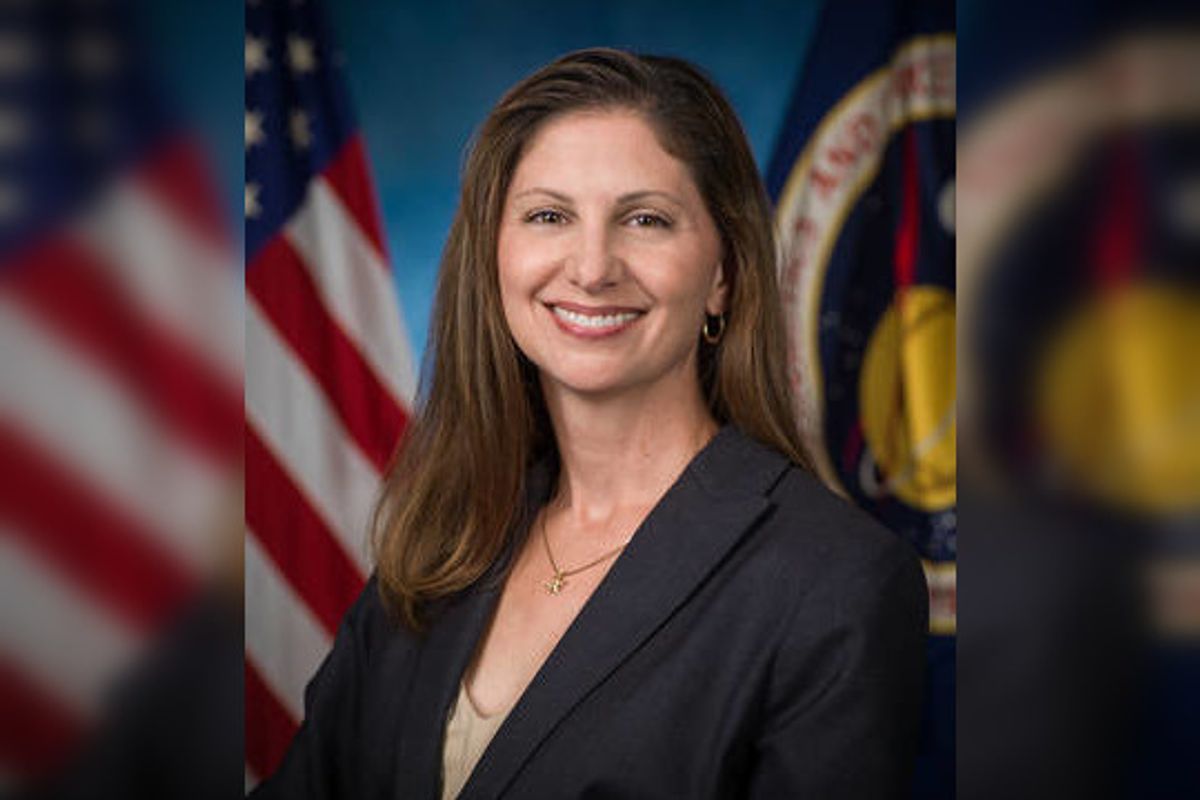10 can't-miss events from Houston-based SpaceCom's virtual conference
where to be online
Today marks the first day in SpaceCom's two-week online conference featuring space entrepreneurs, NASA executives, government experts, and more.
Usually a must-attend event hosted at George R. Brown Convention Center in downtown Houston, SpaceCom is free and virtual this year. Register to attend and check out this curated list of 10 can't-miss discussions.
Click here for the full schedule. (All times have been updated to reflect CDT times)
Tuesday, October 20 — General Session: Whole of Government
Greg Autry, director at SoCal Commercial Spaceflight Initiative, will moderate a discussion with Kevin O'Connell, director at the Office of Space Commerce Department of Commerce, and Scott Pace, executive secretary at the National Space Council. The panel will discuss how they will work together on policies and actions they need to take to enable the trillion-dollar space economy.
This virtual panel takes place online on Tuesday, October 20, from 10 to 10:45 am. Learn more.
Tuesday, October 20 — Carbon Footprint and Emissions Monitoring
Satellite data can give governments and industry the ability to monitor and reduce the carbon footprint. In this panel, experts will discuss the companies that operate and use satellite data to monitor, manage and profit from satellites that monitor the planet's carbon footprint.
- Lou Zacharilla, director of Innovation Space & Satellite Professionals International (moderator)
- Sebastien Biraud, staff scientist and Climate Sciences Department Head at Lawrence Berkeley National Laboratory
- Steve Hamburg, chief scientist at the Environmental Defense Fund
- Yotam Ariel, CEO of Bluefield Technologies
Thursday, October 22 — Keynote: Industry Applications
This general session features how Amazon Web Services helps terrestrial industries take advantage of space enabled services already in place at competitive pricing. Speaker Clint Crosier from Amazon Web Services and moderator Douglas Terrier, chief technology officer at NASA.
This virtual panel takes place online on Thursday, October 22, from 10 to 10:45 am. Learn more.
Monday, October 26 — Keynote: International Space Station
The new head of NASA's International Space Station program, Joel Montalbano, who is based in Houston's Johnson Space Center, provides a status of and exciting new industry applications for the ISS as well as insight into the future of ISS.
This virtual panel takes place online on Monday, October 26, from 10 to 10:45 am. Learn more.
Monday, October 26 — NASA Session: Transferring NASA Technology
NASA's treasure trove of technology is available to American industry and entrepreneurs to apply in profitable ways. In this session, NASA technology transfer leaders — Daniel Lockney, Kimberly Minafra, and Krista Jensen — will discuss the many ways the private sector can tap into the accumulated knowledge NASA has to share.
This virtual panel takes place online on Monday, October 26, from 11 to 11:45 am. Learn more.
Tuesday, October 27 — Space Tourism: The Excitement and Expectations
A panel of industry experts will discuss the space tourism industry, taking a deep dive into what the future holds, constraints for the industry's ability to address the market for many years to come and how some of these projects will be executed from a business, technology and execution perspective.
- Amir Blachman, chief business officer of Houston-based Axiom Space
- Jane Poynter, founder and co-CEO of Space Perspective
- Sudhir Pai, CEO of Autonomous Energy Ventures
- Richard Garriott, private astronaut (moderator)
This virtual panel takes place online on Tuesday, October 27, from 11 to 11:45 am. Learn more.
Tuesday, October 27 — Spaceports as the Innovation Hub for Regions
Spaceports around the world can, and in many cases are, serving as regional innovation centers for high tech activities and creating positive economic development opportunities. Speakers Cherie Matthew, project manager at Corgan, and Pam Underwood, director at the FAA Office of Spaceports, review what the future looks like for spaceports and what funding will be necessary with moderator George Nield, president of Commercial Space Technologies LLC.
This virtual panel takes place online on Tuesday, October 27, from 12 to 12:45 pm. Learn more.
Wednesday, October 28 — NASA Session: Industries of the Future
NASA technology is creating the underpinning for new industries of the future. NASA's work has already changed the world with advances in telecom and microprocessors. More is yet to come. This panel led by Douglas Terrier, NASA chief technologist will explore the industries on the horizon that will stem from NASA innovation.
This virtual panel takes place online on Wednesday, October 28, from 11 to 11:45 am. Learn more.
Thursday, October 29 — Keynote: Women of Space
NASA's head of human exploration, Kathy Lueders, based in Houston's Johnson Space Center, discusses the crucial role that women have, are, and will continue to provide in getting America back to the Moon, as well as in creating the trillion-dollar commercial space economy with moderator Vanessa Wyche, deputy director at JSC.
This virtual panel takes place online on Thursday, October 29, from 10 to 10:45 am. Learn more.
Thursday, October 29 — Zoom to the Moon
An international panel discussion with Orion Program Managers about progress toward launching NASA's first human-rated spacecraft to travel around the Moon since 1972.
- Catherine Koerner, NASA Orion Program Manager NASA at JSC
- Didier Radola, head of ORION ESM Programme Airbus
- Nico Dettman, Lunar Exploration Group Leader for Lunar Exploration Development Projects European Space Agency
- Tony Antonelli, Artemis II mission director Lockheed Martin
This virtual panel takes place online on Thursday, October 29, from 12 to 12:45 pm. Learn more.




 Catherine Koerner is leading the Orion Program from Houston's Johnson Space Center. Photo courtesy of NASA
Catherine Koerner is leading the Orion Program from Houston's Johnson Space Center. Photo courtesy of NASA